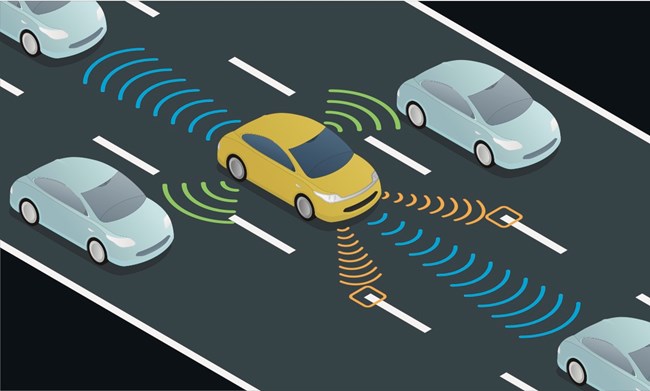We use cookies to ensure that we give you the best experience on our website. If you continue without changing your settings, we will assume that you are happy to receive all cookies on the Business Car website. However, if you would like to, you can change your cookies at any time

The start point for the best source of fleet information |
MPs urge cautious introduction of self-driving vehicles
Date: 15 September 2023 | Author: Sean Keywood

Self-driving vehicles (SDVs) have the potential to improve transport in the UK - but careful implementation will be needed, according to MPs.
The House of Commons Transport Committee has published a report on SDVs, arguing that it is currently a crucial time for the technology.
It describes the sector as a "British success story", but warns that keeping the wider public on board will be challenging, and that often-stated benefits of the technology such as reduced congestion and improved safety cannot just be assumed.
The report states: "We believe [SDVs] have the potential to improve transport connectivity with significant safety, productivity, and mobility benefits.
"However, over the last decade, progress in this technology has failed to meet many of its promoters' predictions, and this has bred understandable cynicism. Hopefully expectations of SDV technology have become more realistic.
"SDVs that can go anywhere at any time remain purely hypothetical, but in more circumscribed forms they can become reality."
According to the report, the committee welcomes the introduction of SDVs in principle.
However, it continues: "The government must take a cautious, gradual approach with the technology introduced only in well-defined and appropriate contexts. As such, we broadly welcome the strategy the government has set out.
"However, without careful handling, SDVs could worsen congestion and exacerbate existing inequalities in transport access."
The report also warns that hypothetical safety benefits from rolling out SDVs should not be taken for granted.
It states: "While it is widely assumed that SDVs will prove safer than human drivers, this is not a given. Optimistic predictions are often based on widespread SDV usage that is decades away, or assertions about human error that ignore other risks.
"Safety must remain the government's overriding priority as SDVs encounter real-world complexity.
"Given this, we question the government's proposed ambition that SDVs must be as safe as a competent and careful human driver. This is too weak and too vague. The government should set a clearer, more stretching threshold."
The report argues that greater automation may lead to drivers becoming out of practice, which could be a problem if they are then required to take control of an SDV at short notice, and says the government should set out a strategy for the future of human driving, including possible changes to driving tests and a plan to ensure that all drivers fully understand the technology.
It also warns that there are potential cybersecurity risks, and complexities over legal liability.
The report describes current SDV laws as "archaic and limiting", and commends work by the Law Commissions and the government in devising a new legal framework.
It states: "The government must pass comprehensive legislation in the next parliamentary session to put in place the robust regulatory framework it promised."
Commenting with the release of the report, committee chair Iain Stewart said: "Widespread take-up of SDVs faces various hurdles, including public confidence in their safety, security and their potential to have knock-on impacts on other road users.
"If the government is going to meet its ambitions for SDV deployment these knotty issues need to be addressed."











